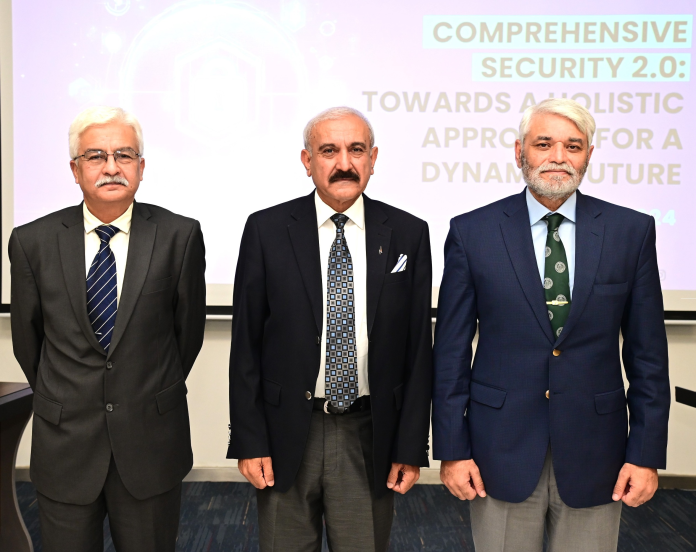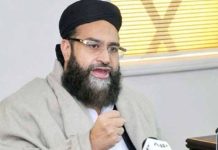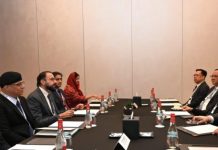ISLAMABAD, NOV 1 (DNA):The Centre for Aerospace & Security Studies (CASS), Islamabad, conducted a special session under its Catalyst Conversation Series on ‘Comprehensive Security 2.0: Towards a Holistic Approach for a Dynamic Future’ with Major General Muhammad Khalil Dar (Retd), Vice Chancellor of Lahore Garrison University, for a critical examination of evolving national security challenges.
Air Marshal Zahid Hussain (Retd), Director (National Security) at CASS and moderator of the Catalyst Conversation, initiated the discussion by underscoring the complex, interconnected nature of modern national security challenges. He outlined how geopolitical tensions, cybersecurity threats, and domestic issues like terrorism and social unrest had diversified the national security landscape. Introducing the session’s key aims, he hoped it would not only clarify how the concept of ‘national security’ had evolved historically and globally, but also promote public awareness of contemporary security issues, particularly the crucial role citizens play in supporting security initiatives.
In his Keynote Address, the Distinguished Speaker, Major General Muhammad Khalil Dar (Retd), highlighted that national security is far more than military power alone; it encompasses a comprehensive approach that spans historical turning points, global alliances, and modern cyber threats. Reflecting on landmark events like the French Revolution and World Wars, he discussed how these pivotal moments redefined sovereignty, power-sharing, and the foundations of comprehensive national security. His insights underscored a need for adaptable security strategies to address today’s multidimensional challenges.
Major General Dar further explored how countries are developing cyber resilience through both defensive and offensive strategies, emphasising the role of citizen engagement in enhancing digital security. He shared practical advice on cyber hygiene, advocating for strong password management, regular software updates, and caution against phishing tactics.
Furthermore, he recommended adopting international security strategies to create flexible frameworks that address evolving threats. By advocating a comprehensive security model, he stressed the importance of cooperation among government, institutions, and the public to build a resilient and secure future. In his Concluding Remarks and Vote of Thanks, Air Marshal Javaid Ahmed (Retd), President CASS-Islamabad, highlighted the shifting dynamics of modern warfare, sharing how mini- alliances now engage in a range of strategies beyond traditional combat.
He noted the increasing role of economic sanctions and trade wars as powerful tools, alongside kinetic warfare, which has evolved since World Wars I and II. According to him, today’s adversaries utilise advanced satellite surveillance to gain full visibility of target areas, transforming warfare into a high-tech arena where intelligence and precision play critical roles. This shift, he concluded, reflects the changing landscape of global security, where technology and alliances are redefining national security and conflict management.

















